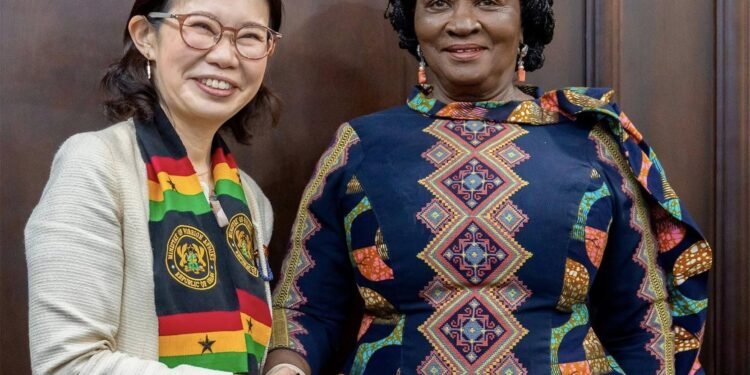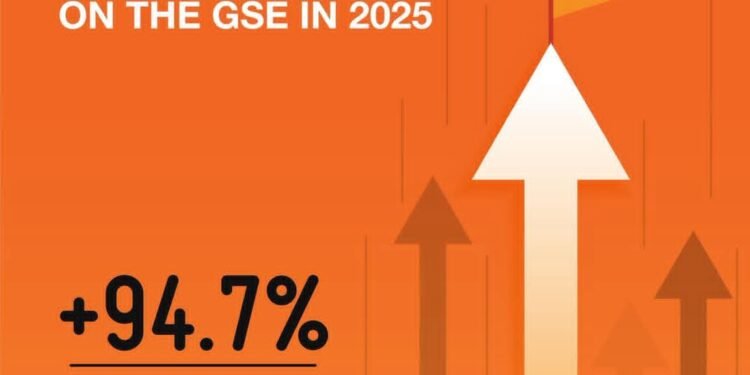The Venture Capital Trust Fund (VCTF) has reached a significant milestone, marking 20 years of operation since its inception in 2004 under Act 680.
Established as a strategic initiative by the government of Ghana, the VCTF was designed to bridge the financing gap for Small and Medium Enterprises (SMEs), providing a much-needed source of equity and quasi-equity investments. However, as the VCTF commemorates two decades of supporting Ghanaian businesses, it is advocating for a review of its founding Act to ensure a more sustainable and reliable flow of equity funding for SMEs.
SMEs are widely recognized as the backbone of Ghana’s economy, contributing significantly to employment, innovation, and GDP growth. However, access to affordable capital has been a persistent challenge for many of these businesses. Traditional financial institutions often offer loans with high interest rates, making it difficult for SMEs to secure funding without compromising their financial stability.
RelatedPosts
The VCTF was created to address this gap by providing an alternative financing option through equity investments. Unlike debt financing, equity funding does not burden SMEs with immediate repayment obligations, allowing them the flexibility to focus on growth and expansion. Over the past 20 years, the VCTF has partnered with private venture capital firms to channel funds into promising SMEs, enabling them to scale their operations, create jobs, and contribute to Ghana’s economic development.
The Need for Legislative Reform
Despite its successes, the VCTF has faced significant hurdles in meeting the growing financial demands of SMEs. Speaking at an event to celebrate the Fund’s 20th anniversary, General Manager Percival Ofori Ampomah highlighted the limitations of the existing legislation, which restricts the VCTF’s ability to secure a steady and continuous flow of funds.
“Venture capital by itself is established by an Act of Parliament. There are things that impede the work of venture capitalists. So, in the next immediate couple of years, we want to remove those impediments. The Act itself must be reviewed because clause 3 of the Act tells us the list of sources of funding the Trust Fund is supposed to get. Now after 20 years, that list needs to be looked at again because the national reconstruction levy has been repealed, but it’s still in the law.”
Percival Ofori Ampomah
The current legal framework, set out in Act 680, was drafted at a time when the national reconstruction levy served as a significant source of funding for the VCTF. However, the repeal of this levy has left a gap in the Fund’s financing structure, hindering its capacity to provide consistent support to SMEs. The proposed amendment aims to address this gap by revising the list of funding sources to include more sustainable options that align with the current economic landscape.
The push for legislative changes at the VCTF is timely, aligning with broader government efforts to promote private sector development and job creation. Ghana’s economic policy in recent years has placed a strong emphasis on empowering SMEs as drivers of growth and innovation. By ensuring a sustainable source of equity funding, the VCTF could play a pivotal role in realizing this vision.
Equity financing from the VCTF offers a flexible and growth-oriented alternative to debt, enabling SMEs to pursue strategic initiatives without the pressure of immediate debt repayment. However, the effectiveness of this model hinges on the availability of sustained funding. Without a reliable flow of capital, the impact of equity investments is limited, and many SMEs may be forced to revert to high-cost loans, stifling their growth potential.
The proposed amendments to Act 680 would create a more robust legal framework that reflects the current realities of Ghana’s economy, providing the VCTF with the financial stability needed to support SMEs over the long term.
A Path Toward Economic Transformation
Stakeholders have expressed optimism about the potential impact of the proposed reforms. If successful, the changes could position the VCTF as a key driver of SME growth, enabling businesses to scale, create jobs, and contribute meaningfully to Ghana’s economic transformation.
The review process will involve consultations with various stakeholders, including government agencies, private sector partners, and representatives from the SME sector. Ampomah noted that the goal is to develop a revised Act that addresses existing challenges while creating opportunities for increased investment and sustainable growth.
“This is one thing we want to make sure to achieve – to review the Act for purpose and to bring it up to date with the current situation on the ground. In so doing, we will be able to convince the government to change that source of funding to a more permanent source of funding for us to be able to continue our work.”
Percival Ofori Ampomah
The proposed amendments to the VCTF Act represent a critical step toward creating a more sustainable and impactful equity financing framework for Ghana’s SMEs. As the Fund embarks on its next phase of growth, the focus will be on removing legal impediments and securing a stable source of funding that aligns with its mission to empower Ghanaian businesses.
READ ALSO: GSE and Fintechs Join Forces to Develop Investment Solutions for Every Ghanaian























